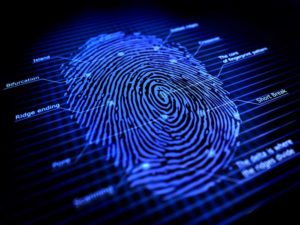(888) 737-7690
Criminal Private Investigators
Private Investigators Criminal Investigation Florida North Carolina Caribbean Collection Evidence Witness Statements Conducting Surveillance
Criminal investigation refers to the systematic process of gathering evidence and information to determine if a crime has been committed, who is responsible, and the circumstances surrounding the crime. It involves a variety of techniques like interviewing witnesses, collecting and analyzing evidence, and potentially conducting surveillance.

Free Consultations
Key Aspects of a Criminal Private Investigation:
This includes collecting physical evidence like fingerprints, DNA, and documents, as well as interviewing witnesses and suspects. Collecting evidence from a crime scene involves systematically documenting, locating, and preserving items that can shed light on the event. This includes photographing the scene, taking measurements, and collecting various types of evidence like fingerprints, biological samples, and trace materials. Proper packaging and labeling are crucial to maintain the integrity of the evidence and ensure it can be used in court.
Investigators analyze crime scenes to identify clues, determine the method of the crime, and potentially identify victims.
Analyzing a crime scene involves a systematic approach to documenting, collecting, and interpreting evidence to reconstruct events and identify possible suspects. This process includes securing the scene, documenting it through photographs and sketches, searching for and identifying evidence, collecting and preserving evidence, and finally analyzing the evidence to reconstruct the crime and identify potential suspects.
Investigators use evidence and information to narrow down the field of suspects and develop probable cause for arrest or prosecution. Identifying suspects in criminal investigations involves a multi-faceted approach, combining visual identification procedures, forensic analysis, and sometimes the use of AI technologies. Visual identification methods, such as lineups, show-ups, and photo arrays, rely on eyewitness accounts, while forensic data like DNA and fingerprints provide concrete evidence. AI can assist by using facial recognition and other technologies to speed up the identification process.
Investigators piece together events surrounding the crime to understand the sequence of events and the motives involved. Creating a timeline is a useful way to plan a project or show how a project has developed over time. You can use timelines either for your own planning or as a clear way to show information to work colleagues, customers or other people.
Criminal investigators utilize forensic science and legal procedures to ensure evidence is collected and processed correctly. The intersection of legal and scientific methods is crucial in various aspects of the justice system, from admissibility of evidence to policy-making and legal research.
Crime Scene Investigations
As professional private investigators we understand the importance of conducting thorough and efficient crime scene investigations. During these complex cases, every detail matters and you need a trained and diligent eye to gather the evidence you need.
Due to the nature of police work in today’s world, many law enforcement agencies simply do not have the man hours necessary to fully investigate every case that comes across their desk. That is where we come in, as private investigators, we have the time, resources, and expertise to conduct a thorough and comprehensive investigation on your behalf. We pride ourselves on our expertise in crime scene investigations, and we use the latest techniques and equipment to collect and analyze evidence.

Types of witnesses in criminal cases
- Eyewitnesses (or lay witnesses): The most common type, these are individuals who directly saw or heard a crime take place. Their testimony is considered direct evidence and can be very powerful in convincing a judge or jury. However, memory can be fallible, and factors like stress or suggestion can impact the accuracy of an eyewitness account.
- Expert witnesses: These individuals have specialized knowledge or skills that help explain complex evidence or technical subjects. A forensic scientist might testify about ballistics, or a psychologist might speak about the defendant's mental state.
- Character witnesses: These are people who testify about the reputation, personality, or behavior of the victim or defendant based on their personal relationship with them.
- Alibi witnesses: These individuals provide testimony that the defendant was in a different location when the crime was committed, which can create reasonable doubt.
How a Criminal Defence Investigation Can Work For You
- Uncovering new evidence. PIs can take a fresh look at a case, scrutinizing initial police reports and evidence with an objective eye. They may discover inconsistencies or overlooked details that can change the direction of an investigation.
- Tracking down missing witnesses. People who initially refused to talk to police or have since moved may be more willing to speak with a PI, who does not represent the government. A skilled investigator can locate and interview these individuals to gather crucial testimony.
- Investigating alibis. PIs can independently verify the details of an alibi using surveillance footage, phone records, and GPS data, which can either strengthen a defendant's position or expose falsehoods.
- Re-examining cold cases. For unsolved cases that law enforcement has stopped actively pursuing, a PI can apply a new perspective and modern techniques to revisit old evidence, develop new leads, and provide closure for families.
- Performing digital forensics. Modern criminal cases often involve digital footprints. PIs with digital forensics expertise can recover deleted emails, messages, and files, and analyze online activity to uncover hidden evidence.
- Conducting surveillance. Private investigators can perform discreet surveillance to monitor the activities and movements of key parties in a case. This can provide valuable video and photographic evidence of behaviors that contradict claims made in court.
- Providing expert testimony. An experienced private investigator can be called to testify in court regarding their findings and the integrity of the evidence they collected. Their professional, unbiased report can be a powerful asset to a legal defense.
- Leveling the playing field. The prosecution often has the extensive resources of a law enforcement agency at its disposal. Hiring a private investigator helps a defense team match those resources and ensure all angles of the case are thoroughly investigated.
- Supporting the defense team. By taking on the legwork of evidence gathering, a PI allows defense attorneys to focus their time and energy on developing legal strategies and preparing for trial.
- Finding the full story. While law enforcement may concentrate only on evidence that supports their theory of the crime, a PI is not constrained by this. A PI's mission is to find the full story, which includes pursuing leads that might exonerate the accused or reveal alternate suspects.
